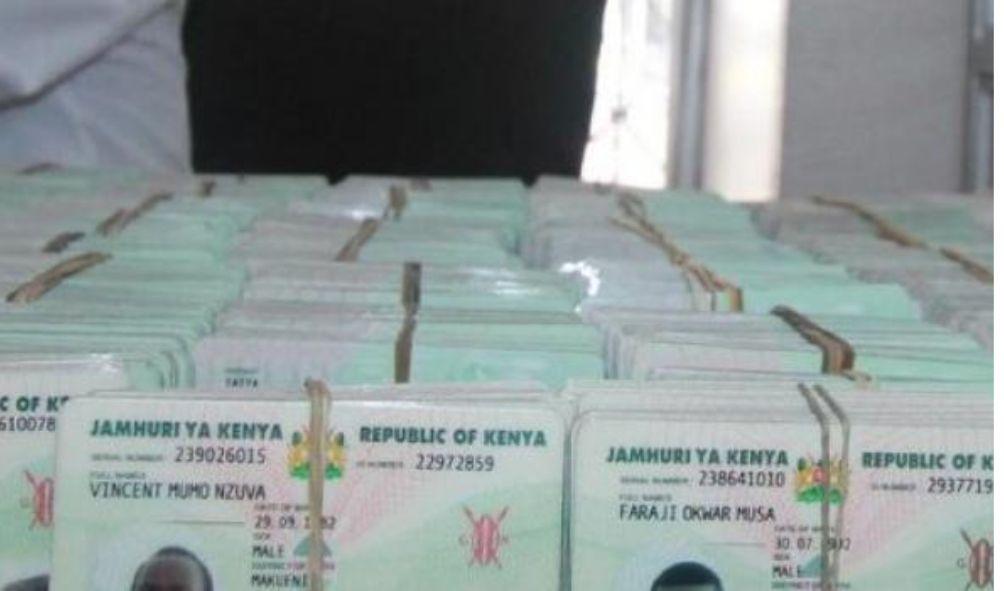Govt Insider Confirms Introduction of Expiry Dates on IDs; Here are the Changes
The government has verified that the microchip setup on Kenyan Identification Cards adheres to the prevailing international standards.
A representative from the Ministry of Interior clarified to PoliticalPulseChat that the microchips will function for a specific period before reaching expiration. In this scenario, the identification cards will undergo renewal every ten years.
The informant mentioned that the latest setup is unrelated to Maisha Namba, as the government continues to follow the High Court’s decision that suspend its implementation.
In December of 2023, the High Court halted the implementation temporarily, awaiting the resolution of a legal case challenging the legitimacy of the Maisha Namba procedure.
“We respect the decision of the court but we had already configured our systems to accommodate the microchip. It has nothing to do with Maisha Namba and collection of money as people speculate online,” the source explained.
“A chip operates for a certain duration. For instance, an ATM card has a chip that lasts on average five years. So in this case, the microchip will last for 10 years. It’s the same logic for everything that requires a microchip.”
Moreover, the informant disclosed that the arrangement of the microchip follows a worldwide standard, offering an additional level of protection for securing biometric data.
“It’s a global practice that is not just in Kenya,” he stated but did not divulge if Kenyans with old IDs will be required to apply for new ones.
Throughout most of Thursday, social media was flooded with conjectures regarding the implementation of expiration dates for identification cards. The prevailing sentiment among many was that the government was being criticized for viewing this initiative as a means to expand its revenue.
ALSO READ:
- Raila Ally Breaks Silence After Ruto-Uhuru Meeting
- Gachagua Close Ally Karungo Wa Thang’wa Accepts Ruto’s CBS Award
- Gov’t to Release Ksh.32 Billion to Counties Next Week – DP Kindiki
- High Court Strikes Down Ruto-Raila 2023 IEBC Amendment Bill
- Kenya Water Towers Agency Dissolved: Government Moves to Streamline State Corporations
In November, the Interior Ministry tried to implement a charge of Ksh1,000 for individuals in Kenya applying for identification cards, as well as a fee of Ksh2,000 for those seeking card replacements.
After facing widespread criticism from the Kenyan public, the Interior Ministry decided to lower the fee for ID replacement to Ksh1,000 and Ksh300 for new applications. Nevertheless, the court temporarily suspended these charges while it assessed a petition challenging their validity.
The Ministry of Interior’s Department of Immigration has not released an official statement regarding the expiration of National IDs.
On Thursday, January 25, a mother asserted that her daughter was issued an identification card this month featuring prominently displayed Maisha Namba characteristics. However, this claim was contradicted by the Ministry of Interior.
“My daughter received her ID card this January. It has Maisha prominently displayed on it, and yes, it has an expiry date. So, do people need to go through the not-so-fun process of getting a new ID every time? I don’t get it?” the parent expressed her concerns.
“Just found out that if you apply for a new ID it comes out as Maisha Namba and has an expiry date. Why would you put an expiry date on a national identity card?” another user posed.
The Maisha Namba was implemented by the administration of President William Ruto to replace second-generation IDs. It was designed to include a Unique Personal Identifier (UPI) that would serve as a permanent registration and identification reference for individuals throughout their lives.
Govt Insider Confirms Introduction of Expiry Dates on IDs; Here are the Changes
